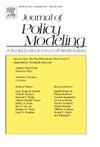建立世界碳银行的理由
IF 3.5
2区 经济学
Q1 ECONOMICS
引用次数: 0
摘要
本文探讨了建立一个新的多边金融机构——世界碳银行(World Carbon Bank)的想法,以便为中低收入国家提供援助资金和技术专长,帮助其实现绿色转型。一个重点突出的高回报优先项目可能包括逐步淘汰燃煤电厂,代之以绿色能源。煤炭占全球排放量的30%。许多煤电厂位于发达经济体之外,相对较新。换掉它们的成本是巨大的,而且大多数较贫穷的国家几乎没有动力或能力这样做。WCB的资金将是直接赠款,而不是贷款。本文章由计算机程序翻译,如有差异,请以英文原文为准。
The case for a World Carbon Bank
This paper explores the idea of creating a new multilateral financial institution, a World Carbon Bank, to channel aid funds and technical expertise to low and middle-income countries, to aid with the green transition. A focused high-return first project could involve phasing out coal power plants and replacing with green alternatives. Coal accounts for 30% of global emissions. Many coal plants are located outside advanced economies and are relatively new. The costs of swapping them out is significant, and most poorer countries have little incentive or capacity to do so. WCB funds would be outright grants and not loans.
求助全文
通过发布文献求助,成功后即可免费获取论文全文。
去求助
来源期刊

Journal of Policy Modeling
ECONOMICS-
CiteScore
6.20
自引率
11.40%
发文量
76
期刊介绍:
The Journal of Policy Modeling is published by Elsevier for the Society for Policy Modeling to provide a forum for analysis and debate concerning international policy issues. The journal addresses questions of critical import to the world community as a whole, and it focuses upon the economic, social, and political interdependencies between national and regional systems. This implies concern with international policies for the promotion of a better life for all human beings and, therefore, concentrates on improved methodological underpinnings for dealing with these problems.
 求助内容:
求助内容: 应助结果提醒方式:
应助结果提醒方式:


